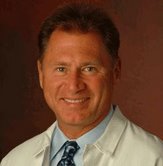I’ve been doing a lot of driving the last few weeks. With my brother visiting from out of town, I’ve taken a couple of road trips to show him around Northern California. And when the eyes started to get heavy after a few hours on the highway, I made a B-line for the next gas station to pick up an energy drink or coffee.
I usually prefer the perks of coffee, but once in a while when I need a little pick-me-up to avoid nodding off behind the wheel, I’ll hit the energy drink section of the gas station’s freezers to peruse the colorfully packaged legalized uppers.
While energy drinks are largely unregulated and safe for most people, that doesn’t mean they are harmless.
A study by the American Heart Association found that healthy participants who drank two energy drinks daily experienced blood pressure and heart rate increases. That alone isn’t necessarily alarming, as healthy adults can usually handle a momentary spike in blood pressure. But, for people with cardiac issues, or if normally healthy people drink too much, there could be dangers.
A moderate amount of caffeine, about 2-3 cups of coffee a day, isn’t dangerous for healthy adults. But when you start creeping up to about 500-600 mg of caffeine, or between 4-7 cups, you run the risk of side effects such as anxiety, irritability, sleeplessness, headaches, gastrointestinal problems, and abnormal heart rhythms.
So, experts at The Johns Hopkins University School of Medicine are calling for regulations requiring energy drink makers to label their products with a list of its caffeine levels, and to warn of the potential for caffeine intoxication.
The American Beverage Association objects, stating that a 16oz. brewed cup of coffee contains 320 mg of caffeine, compared to 160 mg for a “mainstream energy drink.”
The key sticking point is that energy drinks are marketed as supplements, which don’t have caffeine limits enforced by the FDA. Experts would like to at least have the drinks labeled to show how much caffeine people are going to ingest if they purchase the product.
“It is a striking inconsistency that, in the U.S., an over-the-counter stimulant medication containing 100 mg. of caffeine per tablet must include [labeling]… whereas a 500 mg. energy drink can be marketed with no such warnings and no information on caffeine dose amount in the product,” wrote researchers.
“What we’d like to see is a label clearly stating how much caffeine is in fact in one of these energy drinks, perhaps a warning label,” said Dr. Chad Reissig of Johns Hopkins.



 I am a firm believer in using the portion-controlled meal replacements. It is crucial to eat every three hours, and portion-controlled meal replacements (PCMRs) make this process a lot easier.
I am a firm believer in using the portion-controlled meal replacements. It is crucial to eat every three hours, and portion-controlled meal replacements (PCMRs) make this process a lot easier.